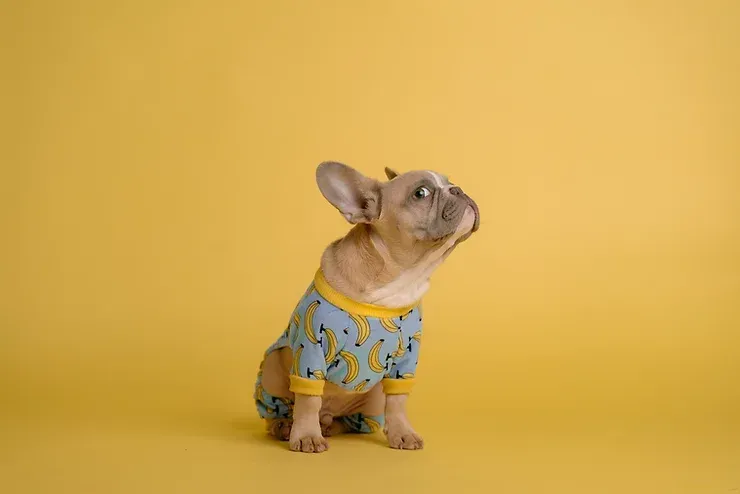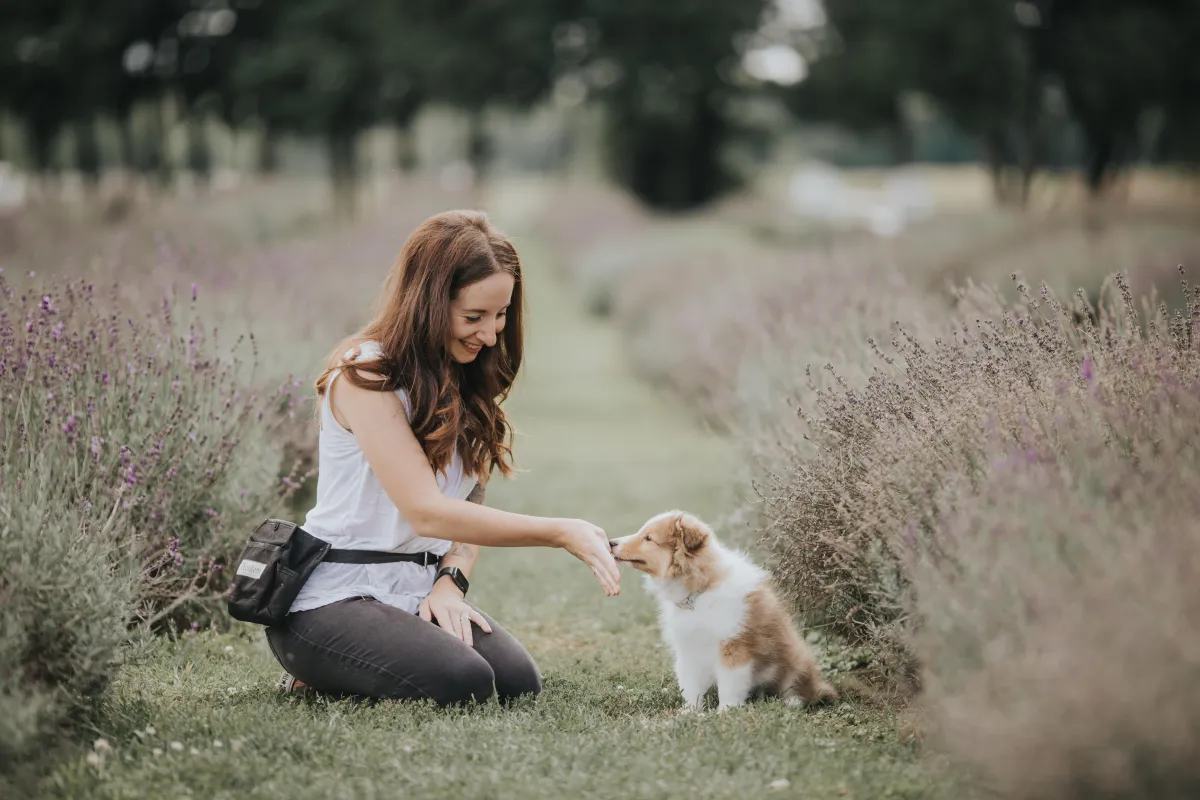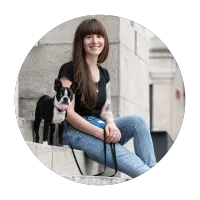Dog Inspired Blog
Guidance, Tips & Inspiration for Every Step of Your Dog’s Journey.

Why is my puppy anxious?
Why is my puppy anxious?
When adopting a puppy, the last thing you expect to see is behavioural issues such as fear and aggression at such an early age. Behaviours such as nervousness around other dogs or new people, growling when we reach for their food bowl, or completely losing it when left alone. It's a common myth that puppies are "blank slates". This idea makes us believe that we are the sole influence on our puppy and how they're personality and behaviours develop.
Ever heard the phrase "it's all in how they are raised"? What if I told you that this statement is flawed? In reality, there are so many pieces that shape our puppy. As their guardians, we play a very important role but so do early life experiences and genetics!

There are two big pieces of our puppies life that happens before coming home. One is in utero, before being born and the second is the time they spend with their mom and siblings before coming home to you.
The effects of stress during pregnancy has been noted in humans and studied on rats, showing that being exposed to inescapable stress during pregnant can cause generalized anxiety in offspring. Which means that, if your puppy's mom was repeatedly stressed while pregnant, your pup is more predisposed to having an anxiety disorder such as general anxiety or separation anxiety.
Dogs who live in cages, are abused, neglect are at high risk. But dogs who are also generally anxious and continue to live in an environment that exposes them to stressors (other people, other dogs, loud noises...etc.) can also pass it down to their babies. We often see behaviours such as resource guarding to be genetic, if your puppy does this, their mom probably does it too. This is why it's so important to meet the parents when choosing a puppy. They are the window into your puppy's future self.
Once your puppy is born, early environment is also very important. If they grow up in a barn with little stimuli like sounds, objects, people...etc., your puppy will be overwhelmed once they leave. Suddenly the world is not so quiet and there's a lot happening around them. Early socialization by breeders is key to setting your puppy up for what's to come. Something simple as playing various types of background noises, introducing different types of novel objects, textures and going out on outings can make all the difference.
Now that we have a better idea of what influences our puppy before they come home, we can start to see how our puppy's personality and character came to be. Did they come from a mom with existing behavioural issues? Was she stressed during pregnancy? And what type of early environment was provided to the puppies? Breeders (or even rescues) should have a socialization plan in place for their puppies, and provide a calm and comforting space for mom and babies.
This means that, how your puppy turns out, is not all on you! Raising a puppy is hard work, but that work starts waaaaay before they come home to you. It means that the weight of "maybe I messed up my puppy" is not yours to hold. The statement of "it's all in how they are raised" is entirely untrue and blames guardians rather than putting pressure on those who created them. Breeders (and rescues) have a big responsibility to ensure their puppies have the best start, and they should be held to higher standards. If you are struggling with a puppy with anxiety - it's not your fault.
But, even if your puppy's beginnings was less than optimal, continued socialization and training on your part can provide a decent foundation on preparing your puppy for their new life with you. We do the best we can, with the time we have. And Tte best time is now, and socialize right at the beginning while your puppy is still in their socialization window (between 8 to 16 weeks old). This is when puppies are most outgoing, willing to explore and curious about the world around them. They are also a sponge, absorbing new information easily and creating new positive experiences before anything negative ones.
The scare of illness and disease is real and of course, socialization should be done safely - it should not be put on the back burner or wait until your puppy is fully vaccinated. At which point, your puppy will be out of the socialization window. Many veterinary associations such as AVSAB and OMVQ agree that puppies are ready to socialize 1 week after their first round of vaccinations. Which is music to a dog trainer's ears! Most puppies can go to class as soon as they come home.
If you notice your puppy is particularly anxious - whether in general or in certain situations, the time to start working on it is now. The less experience they have in their fear, the better (and somewhat easier) it is to undo and create new, positive associations to the world.
Attending a good puppy class is a great place to start. Supervised off leash play, socialization exercises and prevention should all be part of the curriculum. If the issues you are seeing with your puppy are not being addressed in class (such as separation anxiety), speaking with a professional such as the Dog Inspired team can guide you through the steps to helping your puppy gain the confidence they need to thrive!

Let's Work Together
Whether you’re just bringing home a puppy or you’ve already started your service dog training journey, Dog Inspired is here to help you every step of the way.
Service Areas: Deux-Montagnes, St-Eustache, Laval, Montreal

